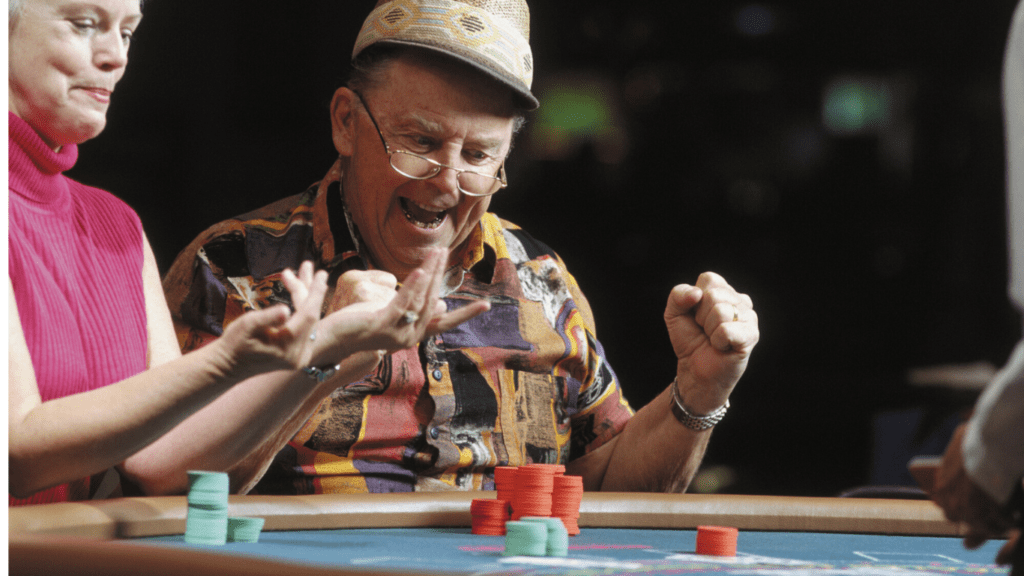Gambling addiction can feel like an endless spiral, pulling people deeper into financial struggles, strained relationships, and emotional turmoil. I’ve seen how overwhelming it can be, leaving individuals questioning if there’s any way out. But recovery is possible, and countless people have proven that it’s never too late to reclaim control over their lives.
Understanding Gambling Addiction
Gambling addiction, also known as gambling disorder, affects millions by disrupting their lives and mental health. Understanding the roots of this addiction sheds light on the path to recovery.
The Psychology Behind Gambling Addiction
Gambling addiction often stems from the brain’s reward system. Dopamine levels increase during gambling, reinforcing the behavior despite negative outcomes. This creates a cycle of compulsion.
Loss-chasing intensifies the issue. After losing money, many gamble more to recover losses, leading to greater financial and emotional strain. Emotional highs from wins and frustration from losses keep individuals hooked.
Cognitive distortions like the “illusion of control” or belief in patterns where none exist drive risky decisions. I’ve seen people repeatedly bet because they think they’re “due” for a win, compounding their losses over time.
Common Triggers and Challenges
- Stress and emotional distress often trigger gambling behavior. Difficulties such as financial problems, relationship strain, or work-related stress create environments conducive to gambling.
- Easy access to gambling platforms exacerbates the problem. Casinos, online betting sites, and mobile apps make gambling available at any time, increasing temptation for those struggling.
- Social pressure or exposure can act as triggers too. Friends or family who gamble may unwittingly contribute to relapse. Even watching advertisements or promotions might ignite urges.
- Facing stigma remains a significant challenge. Shame or fear of judgment often prevents people from seeking help, prolonging the cycle of addiction despite opportunities for support.
Real Stories of Recovery
Stories of recovery highlight the resilience of individuals who have confronted gambling addiction and emerged stronger. These real accounts reveal the critical steps taken and the transformation experienced during their journeys.
Overcoming Denial and Seeking Help
Acknowledging the problem was the first step for many individuals. One person shared how mounting debts and strained family relationships forced them to confront their addiction. Another revealed they only sought help after realizing the emotional toll gambling was taking on their children. Recognizing the severity of the issue led them to reach out for professional counseling or join support groups like Gamblers Anonymous, where they met others with similar struggles.
Transformative Moments That Sparked Change
Key moments often served as catalysts for change. A man described how a near foreclosure on his home forced him to reevaluate his priorities. Another individual spoke about a friend’s intervention, which helped them see gambling’s devastating impact. These turning points brought clarity, helping them make the decision to pursue a structured recovery program or restrict access to gambling platforms through self-exclusion tools.
Building Support Networks for Recovery
Building a reliable support network was essential for sustained recovery. Many cited the importance of reconnecting with loved ones who provided emotional and practical support. Joining therapy groups gave them a safe space to share successes and setbacks. Some also mentioned working with financial advisors to manage debts and reduce triggers tied to financial stress, further bolstering their recovery journey.
Strategies for Regaining Control
Overcoming gambling addiction requires practical strategies that address both emotional and financial challenges. Taking deliberate steps can help rebuild stability and improve well-being.
Developing Healthy Coping Mechanisms
Identifying and replacing harmful habits is essential for managing impulses associated with gambling. I focus on activities that reduce stress and offer fulfillment, such as exercise, meditation, or creative hobbies like painting. Engaging in these can help redirect attention and provide a sense of accomplishment.
Monitoring emotional triggers, like stress or boredom, is another key step. Journaling or speaking with trusted friends about feelings helps me process emotions constructively. In turn, this minimizes reliance on gambling as a coping mechanism.
The Role of Therapy and Support Groups

Therapy provides guidance for confronting the root causes of addiction. Through cognitive behavioral therapy (CBT), I learned to challenge distorted thoughts, like believing in luck or control over outcomes. This practical approach reshaped my perspective and reduced gambling urges.
Support groups, such as Gamblers Anonymous (GA), foster accountability and encouragement. Regular meetings connect me with others on similar recovery journeys. Sharing experiences and hearing others’ progress reinforces my commitment to change.
Financial Recovery After Gambling Addiction
Tackling financial consequences starts with creating a realistic budget. I enlisted financial advisors to negotiate debts and establish repayment plans without further stress. Prioritizing essentials and cutting unnecessary expenses built a manageable system.
Implementing preventative measures, like self-exclusion from online gambling platforms, helped me protect progress. Automatic savings transfers and restricted access to credit also reduced temptations linked to financial relapses.
Lessons Learned from Real Stories
Real-life recovery stories reveal universal lessons that can inspire others to overcome gambling addiction. Key themes include embracing vulnerability and committing to continuous growth throughout the recovery journey.
Strength in Vulnerability
Acknowledging the problem of gambling addiction is a crucial step toward change. Many individuals I read about described how admitting their struggles, often to close friends or support groups, marked the turning point in their lives. For example, members of Gamblers Anonymous shared how opening up created a safe environment for accountability and mutual understanding.
Sharing emotions reduced isolation, which often worsens addiction. One recovery story highlighted that being honest with loved ones led to emotional support and practical assistance, such as managing finances or seeking therapy. Accepting vulnerability, rather than perceiving it as weakness, encouraged long-term healing.
The Importance of Persistence and Growth
Consistent effort and adaptability emerged as recurring elements in recovery. People emphasized how setbacks, like minor relapses, were opportunities to reassess triggers and strengthen coping strategies. For instance, one individual found that even after a relapse, revisiting their therapist and reevaluating stress-management techniques restored focus on recovery goals.
Seeking personal development helped many sustain progress. Taking on new hobbies, pursuing career goals, or rebuilding relationships showcased growth beyond the scope of overcoming gambling. These stories reinforced the idea that viewing recovery as an ongoing process, rather than a fixed destination, led to more profound and lasting change.
Inspiring Hope for Others
Real recovery stories inspire those still struggling with gambling addiction by showing that positive change is possible. Sharing these experiences:
- fosters hope
- empowerment
- sense of community
Encouraging Others to Share Their Stories
Sharing personal recovery experiences helps create a safe space for open dialogue. When individuals share their struggles and victories, it normalizes the conversation around addiction and reduces feelings of isolation. For example, platforms like Gamblers Anonymous meetings or online forums allow individuals to connect and learn from one another. Hearing others’ progress encourages those in earlier recovery stages to believe they too can regain control.
I’ve seen how detailed stories emphasizing the challenges and successes of recovery resonate with individuals seeking support. Whether it’s describing specific triumphs, like rebuilding relationships, or discussing setbacks and how they were addressed, these moments can motivate others to pursue their own recovery plans.
Breaking the Stigma Around Gambling Addiction
Stigma often prevents individuals from acknowledging their addiction or seeking help. Open discussions and public awareness dismantle misconceptions about gambling as merely a lack of willpower. Addiction is rooted in complex psychological and behavioral patterns, not moral failings.
I understand how important it is for recovering gamblers to feel supported rather than judged. Sharing factual information, such as the role of dopamine in compulsive behavior, can help demystify the condition. Highlighting positive examples of recovery reinforces that seeking help signifies strength, not weakness. Initiatives like awareness campaigns and candid testimonials from public figures also play a critical role in reshaping societal attitudes, making it easier for others to reach out.


 Dallaseth Evansquire serves as the Chief Content Strategist at Gamble Time Hub, where they lead the vision and direction of all editorial content. With a deep-rooted passion for the gambling industry, Dallaseth curates and oversees high-quality articles that span gambling news, sports betting analysis, and high-stakes player stories. Their expertise ensures that the platform remains both informative and engaging, while also emphasizing the importance of responsible gambling practices. Dallaseth’s creative direction plays a key role in shaping the voice and credibility of Gamble Time Hub.
Dallaseth Evansquire serves as the Chief Content Strategist at Gamble Time Hub, where they lead the vision and direction of all editorial content. With a deep-rooted passion for the gambling industry, Dallaseth curates and oversees high-quality articles that span gambling news, sports betting analysis, and high-stakes player stories. Their expertise ensures that the platform remains both informative and engaging, while also emphasizing the importance of responsible gambling practices. Dallaseth’s creative direction plays a key role in shaping the voice and credibility of Gamble Time Hub.

